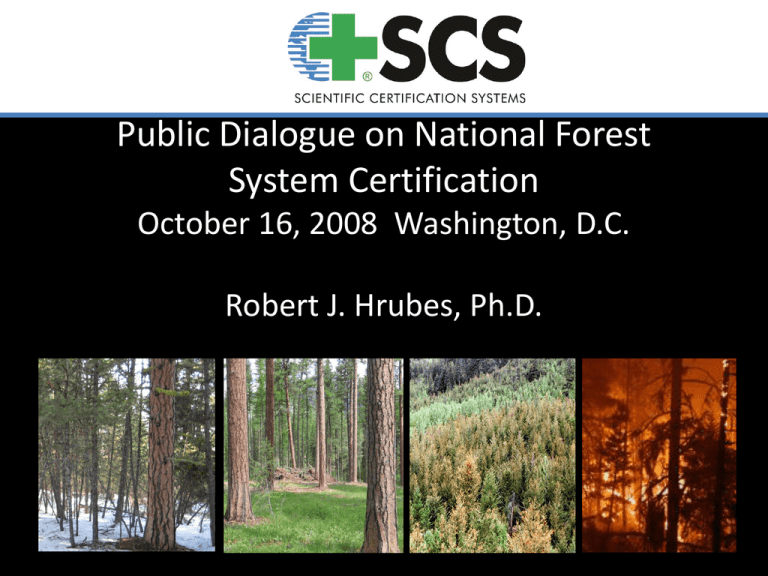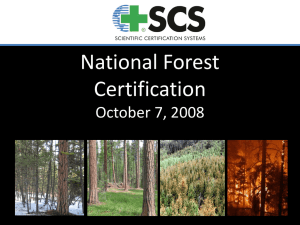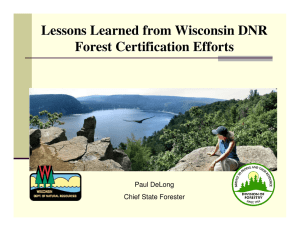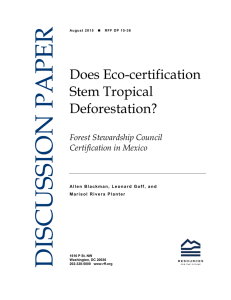Public Dialogue on National Forest System Certification Robert J. Hrubes, Ph.D.
advertisement

Public Dialogue on National Forest System Certification October 16, 2008 Washington, D.C. Robert J. Hrubes, Ph.D. Certifier’s Charge • Assess whether policies, plans, procedures and actions conform with FSC Standards • Assess effectiveness and consistency of implementing management systems at the scale of National Forest units • Anticipate/approximate/estimate possible special Indicators for National Forest management Certification Process 1. Utilizing stakeholder consultation and professional expertise, articulate “additional considerations” 2. Review of documents & stakeholder consultation 3. Audit planning: site selections, meetings, etc. 4. On-site assessment/evidence gathering (interviews, field observations, document review, additional stakeholder consultation) 4. Deliberation and synthesis 5. Reporting Example C.6.3.d Old Growth: Ecological functions and values shall be maintained intact, enhanced, or restored. 6.3.d.1 Type 1 stands are not harvested 6.3.d.3 Type 2 and Type 3- managed so there is no net decline Unique Aspects of Pilot Tests • • • • • • Award of certification not a possible outcome First assessments on USDA National Forests FSC Federal Lands Policy Additional considerations Level of audit team expertise Stakeholder consultation—breadth/intensity Notable Non-conformances • C.5.1- Ongoing budget reductions = lack of support for long-term management and restoration • C.5.6- Overstocked stands in areas designated for active timber management • C.6.3.- Old growth forest management • C.6.5.- Road management • C. 8.2.C- Monitoring key wildlife spp. and habitat Why Consider NFS Certification? Force and mechanism for change – To date, certification has had positive impacts on state, private, community, etc. forests – Would National Forests be an exception? Equitable access to certification – Possible non-conformance with FSC’s own policy b/c of current exclusion of an ownership class – Certification is increasingly important for forest managers and wood product companies to compete Force for Change- Cert. Success Factors • Stakeholder participation (standard development and evidence gathering) • Strong market demand for FSC certified products • Organizations where field staff are removed from policy and strategic direction setting • Organizations with chronic underfunding • Senior management and field staff view certification as a tool for improvement Common Misperceptions • There is a commercial mandate associated with FSC certification • Certification is ill-suited to federal lands • Certification clashes with the protection of public trust resources and values and would mandate logging • Certification would endorse illegal behavior • Certification amounts to ceding of authority to a third party




